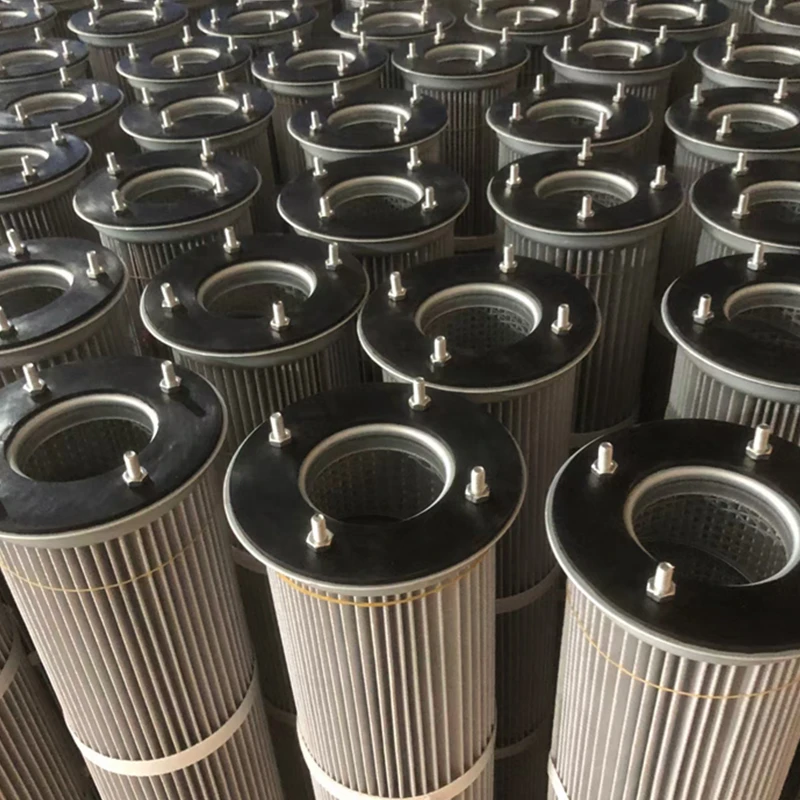 Tel:
+8615930870079
Tel:
+8615930870079
ديسمبر . 30, 2024 11:52 Back to list
turbine air intake filters
The Importance of Turbine Air Intake Filters
In the world of aviation and power generation, turbomachinery plays a crucial role in ensuring optimal performance and efficiency. Among the different components of turbines, air intake filters hold significant importance. These filters serve as the first line of defense against contaminants that can adversely affect turbine operation, leading to decreased efficiency, increased wear, and even catastrophic failures.
Understanding Turbine Air Intake Filters
Turbine air intake filters are designed to remove particulate matter, including dust, dirt, and other airborne pollutants, from the air entering the turbine. Turbines require a steady flow of clean air for combustion, cooling, and mechanical processes. The presence of contaminants can impair combustion quality, reduce energy output, and lead to mechanical failures.
The design and construction of these filters vary depending on the specific application and environmental conditions. Some filters utilize pleated designs that increase surface area, enhancing particulate capture without significantly obstructing airflow. Others may incorporate advanced materials, such as synthetic fibers, to improve filtration efficiency and lifespan.
Types of Filters
There are several types of turbine air intake filters commonly used in the industry, each offering unique advantages
1. Panel Filters These are flat, rectangular filters commonly used in smaller turbines. They provide good filtration at a relatively lower cost and are easy to replace.
2. Bag Filters With a larger surface area than panel filters, bag filters are often used in larger systems where high air volumes are processed. They can capture a greater volume of particulate matter, extending the time between required replacements.
3. HEPA Filters High-Efficiency Particulate Air (HEPA) filters are capable of trapping 99.97% of particles larger than 0.3 microns. These filters are essential in environments where air purity is critical.
turbine air intake filters

4. Cyclone Separators While not traditional filters, these devices use centrifugal force to remove larger particles from the air stream before it reaches the main filtration system. This leads to a longer lifespan for primary filters.
Benefits of Clean Air Intake
The primary benefit of utilizing high-quality air intake filters in turbines is enhanced efficiency. Clean air enables optimal combustion, which in turn maximizes energy output while minimizing fuel consumption. Furthermore, when turbines operate with clean air, they experience less wear and tear, leading to reduced maintenance costs and extended operational lifespans.
Additionally, consistent air quality monitoring and filter maintenance can provide valuable data on plant operations. Effective filtration systems can reduce downtime caused by unplanned maintenance, thus improving overall productivity.
Maintenance and Best Practices
Regular maintenance of turbine air intake filters is essential to ensure their effectiveness. Routine inspections should be conducted to assess the condition of filters and to replace them before they become saturated with particulates. Implementing a preventative maintenance program can help in identifying potential issues and extending the lifespan of the filters.
Moreover, the selection of the appropriate filter should consider factors such as local environmental conditions, the specific operational requirements of the turbine, and the manufacturer's recommendations. By choosing the right type of filter and following best maintenance practices, operators can ensure optimal turbine performance and reliability.
Conclusion
Turbine air intake filters play a critical role in the efficient operation of turbines in aviation and power generation. By ensuring that clean air enters the system, these filters enhance combustion efficiency, reduce wear, and prolong the lifespan of the machinery. As the industry continues to evolve, the importance of maintaining high standards in air filtration will remain paramount for the reliability and efficiency of turbine operations.
-
Types and Applications of Air Filtration CartridgesNewsJul.28,2025
-
The Role of Gas Turbine FiltersNewsJul.28,2025
-
Mastering Air Filter Cartridge UseNewsJul.28,2025
-
Advanced Turbine Filters for Modern Gas TurbinesNewsJul.28,2025
-
Cellulose Air Filter Cartridge Advantages in Dust FiltrationNewsJul.28,2025
-
Cellulose Filters for Air Particle ReductionNewsJul.28,2025

 Email:
Email:





